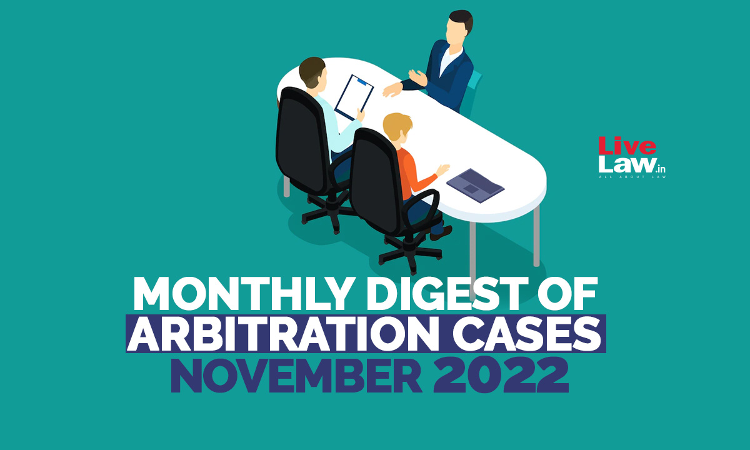Arbitration Cases Monthly Round-Up: November 2022
ausaf ayyub
2 Dec 2022 9:30 AM IST
Supreme Court: Issue Of Arbitrability Should Be Left To Arbitrator Unless On The Face It Is Found That Dispute Is Non- Arbitrable: Supreme Court Case Title: VGP Marine Kingdom Pvt Ltd versus Kay Ellen Arnold The Supreme Court reiterated that while considering application under Section 11(6) of the Arbitration and Conciliation Act, the dispute with respect to...
Next Story



